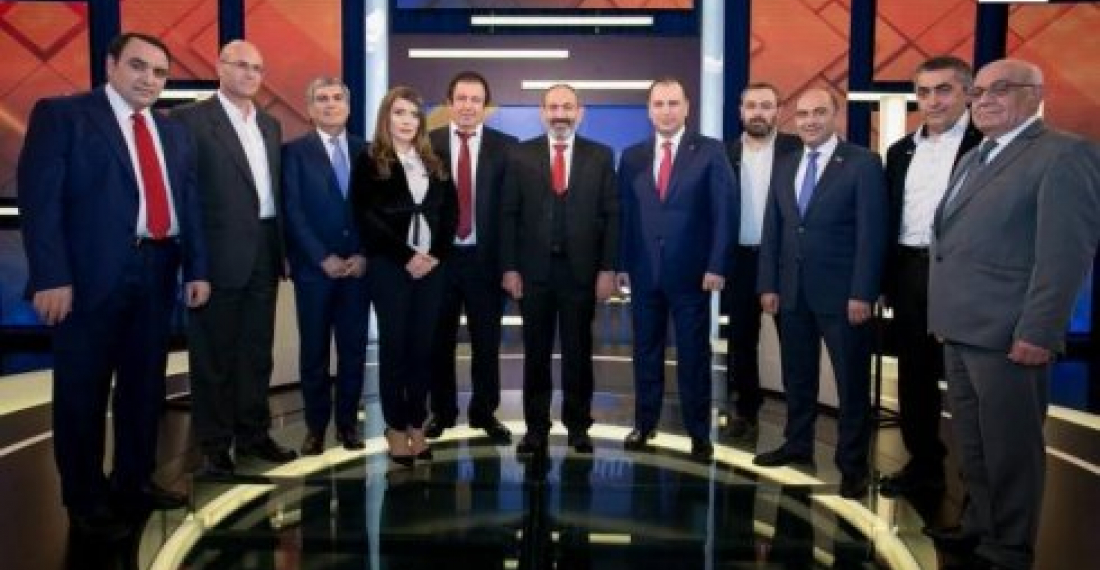The people of Armenia are going to the polls on Sunday (9 December) to elect a new parliament and government. Early parliamentary elections complete the process of political transformation that started in the spring when street protests forced a change of government.
The charismatic leader of those protests, Nikol Pashinyan, who has been prime minister since May, is expected to lead his My Step party to a landslide victory according to opinion polls. But the election campaign has been competitive with ten other political parties and blocs trying to ensure at least a presence in the parliament, from where they hope they can provide a challenge to Pashinyan.
Days before the election the leaders of the parties participated in a marathon television debate lasting more than three hours, providing Armenians a snapshot of the choice in front of them.
Leaders of all political parties and blocs running for parliament participated in the debate broadcast on the Public TV channel: namely Vigen Sargsyan (HHK - Republican Party of Armenia), Suren Sahakyan (Citizens Decision Social-Democratic Party), Armen Rustamyan (ARF - Dashnaktsutyun), Nikol Pashinyan (My Step bloc), Edmon Marukyan (Lusavor Hayastan party), Levon Shirinyan (Christian-Peoples Rebirth party), Lusine Haroyan (National Progress party), Aram Sargsyan (We bloc), Artur Baghdasaryan (Orinats Yerkir party), Varuzhan Avetisyan (Sasna Tsrer party) and Gagik Tsarukyan (Prosperous Armenia party).
Participants addressed a range of issues, including the economy, social conditions, the Karabakh conflict and corruption. At the end of the event the participants shook hands.
The televised debate was the highlight of the short campaign, which saw prime minister Pashinyan campaigning intensively across the country as he strives to turn his country-wide popularity into a convincing election victory on Sunday. In the new Armenian politics following the peaceful but unexpected change of government in the spring, many of the parties contesting are struggling to remain relevant.
Under Armenia's rather complex election system there must be at least three parties in the Armenian parliament.
Observers of the Armenian political scene have noted a freer atmosphere ahead of the elections, and the government has promised a fair and transparent election process. The election may yet provide some surprises as regards turnout, and political forces that may emerge strong enough to be represented in the new parliament.
source: commonspace.eu
photo: Leaders of 11 political parties and blocs contesting in the 9 December early parliamentary elections in Armenia participated in a live televised debate on Wednesday (6 December)







